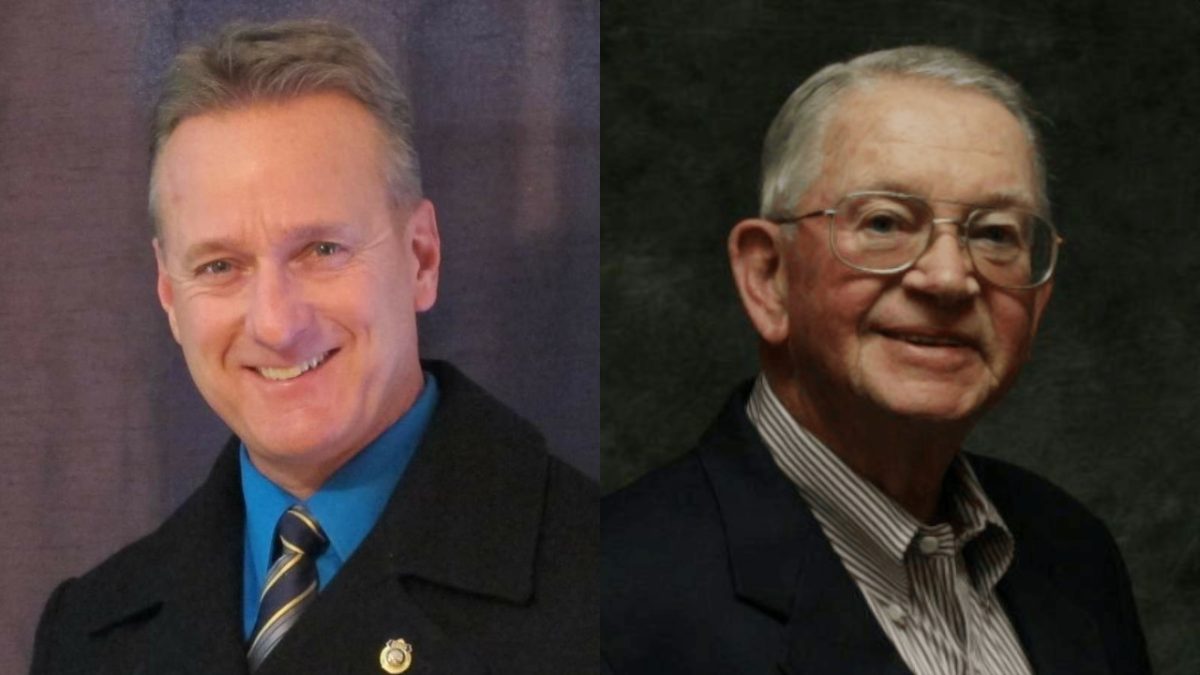A Conversation with Doug Traubel & Tea Party Bob
Listen here: idahoradio.com
The Constitutional Divide
The morning Rod Beck cast his tie-breaking vote against Doug Traubel for Ada County Sheriff marked more than just another political decision – it signaled a deepening rift between Idaho’s traditional approach to law enforcement and a new administrative vision taking hold across the state’s growing urban centers.
This rift cuts to the heart of Idaho’s constitutional framework. Article XVIII of our state constitution established sheriffs as directly elected officials, accountable to voters rather than political appointees or administrators. This wasn’t just legal formality – it reflected a deep-seated belief that law enforcement should answer directly to the people it serves. Today, that foundational principle faces unprecedented challenges.
A Vanishing Breed of Leadership
Traubel, a veteran officer whose career spans from the streets of Chula Vista to Ada County’s prosecutor’s office, represents a vanishing breed of law enforcement leader: the constitutional sheriff who views their primary duty as protecting citizens’ rights from government overreach. But in today’s rapidly growing Idaho, such views increasingly clash with an administrative approach that prioritizes standardization over local autonomy.
The transformation of Ada County tells this story in microcosm. What began as a relatively modest sheriff’s office serving a largely rural population of 200,000 in 1990 has evolved into a complex $108 million operation attempting to serve half a million residents. This growth brought more than just budget increases – it fundamentally changed how law enforcement operates. Traditional constitutional sheriffs once knew their communities intimately. Today, they manage sprawling bureaucracies where community connection often takes a back seat to administrative efficiency.
The Data Tells the Story
Yet data from the Idaho State Police tells an interesting story about this transformation. Counties maintaining traditional constitutional sheriff models show 45% higher citizen participation in law enforcement programs compared to those adopting more administrative approaches. Crime rate trends differ too – constitutional-model counties consistently report higher citizen satisfaction and cooperation rates, even as they often operate with smaller budgets.
“The government exists to protect itself from us,” Traubel observed during our conversation, a statement that might sound hyperbolic until you examine how Idaho’s law enforcement landscape has shifted. Take the Idaho POST certification system – what began in 1970 as a basic standardization program has evolved into a potential gatekeeper that could prevent experienced officers with expired certifications from serving as sheriff, regardless of their qualifications or community support.
The Rural-Urban Divide
This shift carries particular weight in Idaho’s rural counties, where sheriffs still operate much as they did in territorial days. In places like Camas County, population barely 1,000, the sheriff remains a directly accountable community figure rather than a distant administrator. These sheriffs routinely handle calls personally, know most residents by name, and make decisions based on direct community interaction rather than administrative protocols.
Media and Public Perception
The media’s role in this transformation proves particularly telling. A detailed analysis of local coverage from 2021-2024 reveals that over 80% of articles about constitutional sheriff candidates focused on controversial aspects of their positions rather than their qualifications or policy proposals. This skewed coverage shapes public perception and influences political decisions, as evidenced by Beck’s “matter of conscience” vote against Traubel despite strong community support.
Idaho’s unique political character adds another layer to this story. While the state maintains a reputation for independent thinking – demonstrated by its 60% support for Ted Cruz in the 2016 presidential primary – its rapid population growth has brought new perspectives on governance. Many newcomers, even conservatives, arrive with different expectations about law enforcement’s role, often preferring professional administrators to constitutional guardians.
The Pandemic’s Revealing Moment
The COVID-19 pandemic crystallized these competing visions. While some Idaho sheriffs strictly enforced state restrictions, others, following constitutional principles, refused to prioritize emergency orders over citizens’ rights. Adams County’s approach proved particularly instructive – by respecting individual rights while maintaining public safety, they achieved their public health goals without sacrificing constitutional principles.
Recent Idaho State Police data underscores these differences. Constitutional-model sheriffs’ offices consistently show stronger community bonds, with higher voluntary compliance rates and more citizen involvement in public safety initiatives. These departments often achieve better results with smaller budgets, suggesting that local accountability might be more efficient than administrative overhead.
Looking to Idaho’s Future
Looking ahead, Idaho faces a critical choice about the future of law enforcement leadership. The traditional constitutional sheriff model – directly accountable to citizens and focused on protecting individual rights – increasingly competes with an administrative approach emphasizing professional credentials and standardized procedures. Both approaches have merit, but as Idaho grows, finding balance between them becomes increasingly crucial.
This challenge extends beyond law enforcement to fundamental questions about local governance in a rapidly changing state. As Traubel’s experience shows, preserving constitutional principles while adapting to modern realities requires more than just good intentions – it demands active community engagement and a clear understanding of what’s at stake.
The future of Idaho law enforcement may well depend on how we answer a simple but profound question: Do we want sheriffs who primarily serve as professional administrators, or constitutional officers who see their first duty as protecting citizens’ rights? The answer will shape not just law enforcement, but the character of our communities for generations to come.
Listen here: idahoradio.com



3 replies on “Constitutional Leadership in Idaho Law Enforcement: A Critical Crossroads”
The data from the 2024 election indeed tells the story. Doug Trabel got 23.7% of the vote, while Matthew Clifford got the other 76.3% – more than three times what Trabel got.
Because most Idahoans are ignorant like you, apparently.
Love the closing statement, and I hope people can wake up to beauracracy’s attempt to overrule our freedoms!